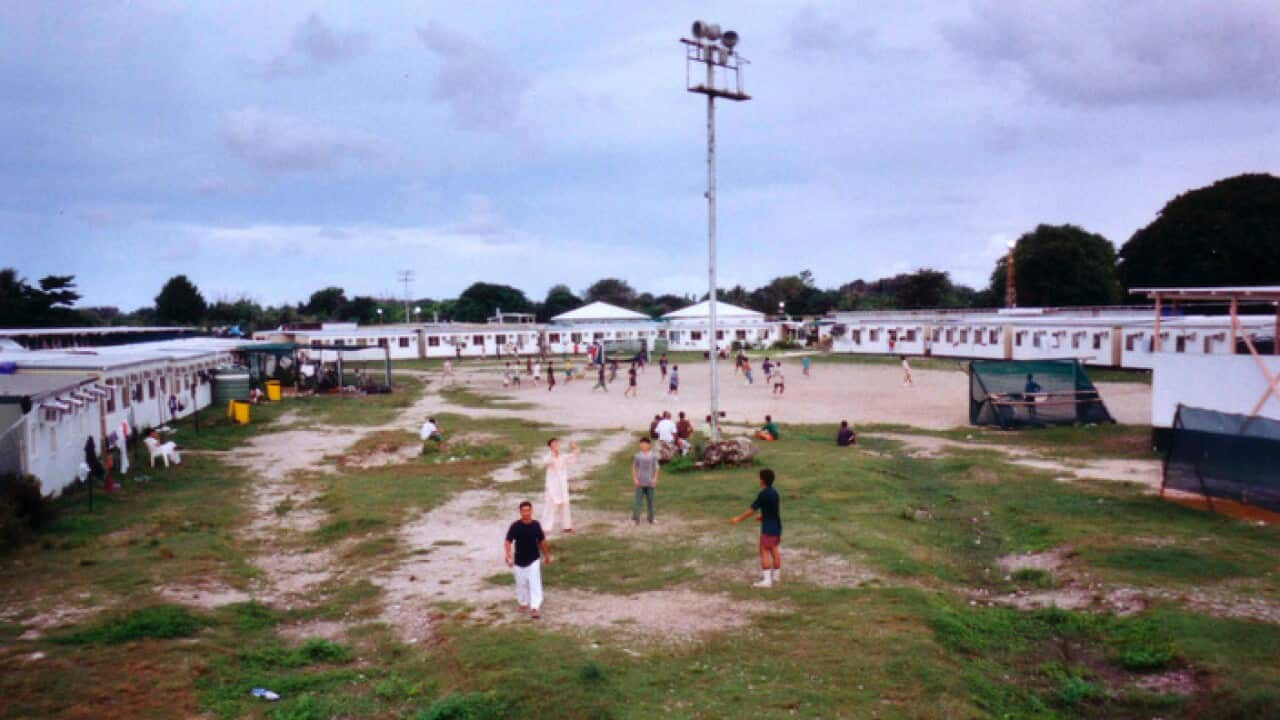Over 1000 adults and children remain on the island behind what Amnesty International describes as a fortress of secrecy.
Based on months of research, including interviews with more than 60 people in Nauru and Australia, Amnesty International's report Island of Despair: Australia's processing of refugees on Nauru looks at the lives of people detained under Australia's offshore detention system on the island.
Anna Neistat the Senior Director for Research at Amnesty International says the organisation applied for access to the centre six times over the past two years through official channels but the organisation's requests were either ignored or rejected.
She then visited the island in a personal capacity gaining access to those detained.
She describes a typical day in the life of those detained.
"There are two categories. There are those who are inside the detention facility, they are not technically detained anymore they can leave and come back, but they are not provided with any other accommodation," she said.
"There are both asylum seekers and those who refugee status has been determined including children. Their life is completely regulated. They can only have meals at certain times still in tents with mice and insects in extremely crowded conditions without privacy.
"Others live in community accommodation, so their living conditions are a little better but at the same time they face other problems, so they feel less safe now that they live in the community, a number of women told me that they can't go out alone because they face sexual abuse."
Ms Neistat said without work many people have nothing to do with their days and many children no longer attend local schools due to harassment.
The report highlights the deteriorating mental health of both children and adults held on the island - with the authors saying their distress has been caused partly by the indefinite nature of their detention.
"We give in the report several examples of families where women are in this highly supervised medical facility because they tried to commit suicide several times and their state of mental health is such that they cannot live at home. Their husbands are doing their best to take of the children who are also deteriorating rapidly."
Amnesty is calling for the government to speed up the resettlement process for the more than 1000 people who remain on Nauru.
Immigration Minister Peter Dutton has reasserted that asylum seekers on Nauru will not be resettled in Australia.
Questioned during Senates estimates Michael Pezzullo Secretary of the Department of Immigration and Border Protection, could not give a definite answer about where and when asylum seekers and refugees would possibly be resettled.
"As Mr Dutton, the Prime Minister and others have indicated we are working actively with a number of potential third country resettlement locations as well as our partners in PNG and Nauru for that matter, on the resettlement of those found to be owed protection on either PNG or Nauru," he said.
Associate Professor Alex Reilly teaches in the areas of migration, citizenship, constitutional law, and Indigenous legal issues at the University of Adelaide.
He said that like Australia, Nauru is a signatory to the Refugee Convention making it difficult for those in detention centres and their advocates to legally object to their detention.
Associate Professor Reilly also said it's difficult to know where the Australian Government is likely to place those found to be refugees.
"Most of the people on Nauru have been found to be refugee yet no resettlement option has been found for them," he said.
"The reality is that there aren't too many options. In our region there are only a few signatories to the refugee convention, Nauru being one of them. But Nauru is not a place where people can be permanently resettled. It's a tiny island with a population of 9000 people it just doesn't make sense for people to settle there permanently. Australia has tried Cambodia, we don't know how hard it's trying with other western countries, such as the US or Canada but it's pretty unlikely that they would be willing to resettle people from our region."
As to when, Associate Professor Reilly said that's anyone's guess: "A resettlement option needs to be found for people or at the moment they do face the prospect of indefinite detention."











